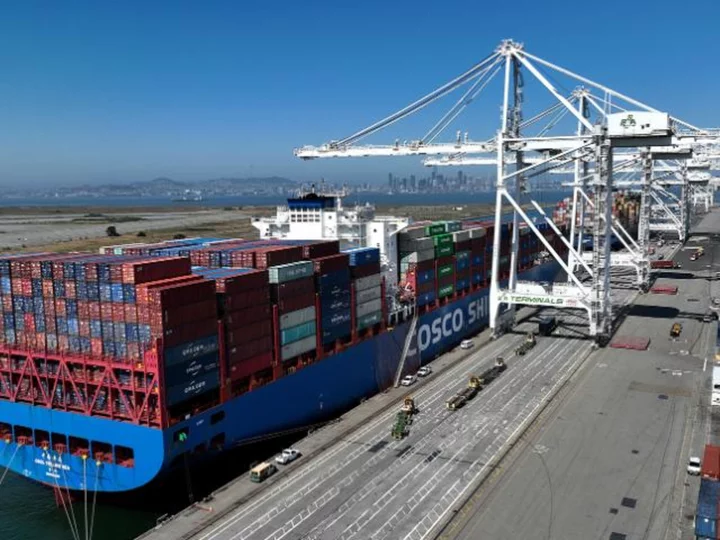China's exports suffered their biggest drop in more than three years in July as global demand slowed, adding further pressure on Beijing to find ways to reinvigorate the world's second largest economy.
The value of exports, measured in US dollars, fell 14.5% last month from a year ago, the biggest drop since February 2020 when the initial Covid-19 outbreak battered trade and production, according to Chinese customs statistics released on Tuesday.
It also marks the third straight month exports have declined.
The steep drop is a reflection of last July's high number and lower prices, said analysts from Capital Economics in a research note on Tuesday. After accounting for seasonality and changes in export prices, they estimated export volumes only edged down 0.9% in July from June.
However, exports are expected to decline further over the coming months, the analysts said, citing "wider evidence" that global goods demand is falling as pandemic distortions unwind and monetary tightening weighs on consumer spending.
"The near-term outlook for consumer spending in developed economies remains challenging, with many still at risk of recessions later this year, albeit mild ones," they said.
For the first seven months of the year, China's exports decreased 5% from a year earlier. In particular, shipments to the United States, China's single biggest trading partner, dropped 13%.
Exports had been a rare bright spot during the pandemic years, providing much-needed support for China's economy as it grappled with rigid Covid lockdowns and a slumping housing market. They accounted for 17% of China's GDP last year.
But since last October, those shipments have shrunk as surging inflation and rising interest rates dampen global demand.
Weakening exports deal a fresh blow to the Chinese economy, which lost momentum recently after a strong start to the year. Signs of deflation are becoming more prevalent, sparking concerns that China could enter a prolonged period of stagnation.
Tuesday's data also showed China's imports fell 12.4% in July from a year earlier, widely missing a forecast 5% drop in a Reuters poll of analysts.
It adds to evidence that the country's domestic demand has softened, with volumes of imports falling to their lowest level since the start of the year.
Analysts are now calling on Beijing to roll out more concrete and forceful plans to prop up the economy, including major measures to boost demand.
Yuan depreciation
A weaker currency may help, by making China's exports more competitive.
On Tuesday, the People's Bank of China — which sets a daily range within which the yuan can trade — pegged the midpoint for the currency at 7.1565 to the US dollar, weaker than the previous day's 7.138.
The weak trade figures and lower yuan fixing triggered a drop in the Chinese currency in foreign exchange markets. The offshore yuan weakened 0.3% against the US dollar on Tuesday.
So far, the policy measures implemented by Beijing to boost the economy "were not strong enough" to impress investors, said Ken Cheung, chief Asian foreign exchange strategist for Mizuho Bank.
"In this context, yuan depreciation could serve as a tool to support China exports and facilitate economic recovery."









